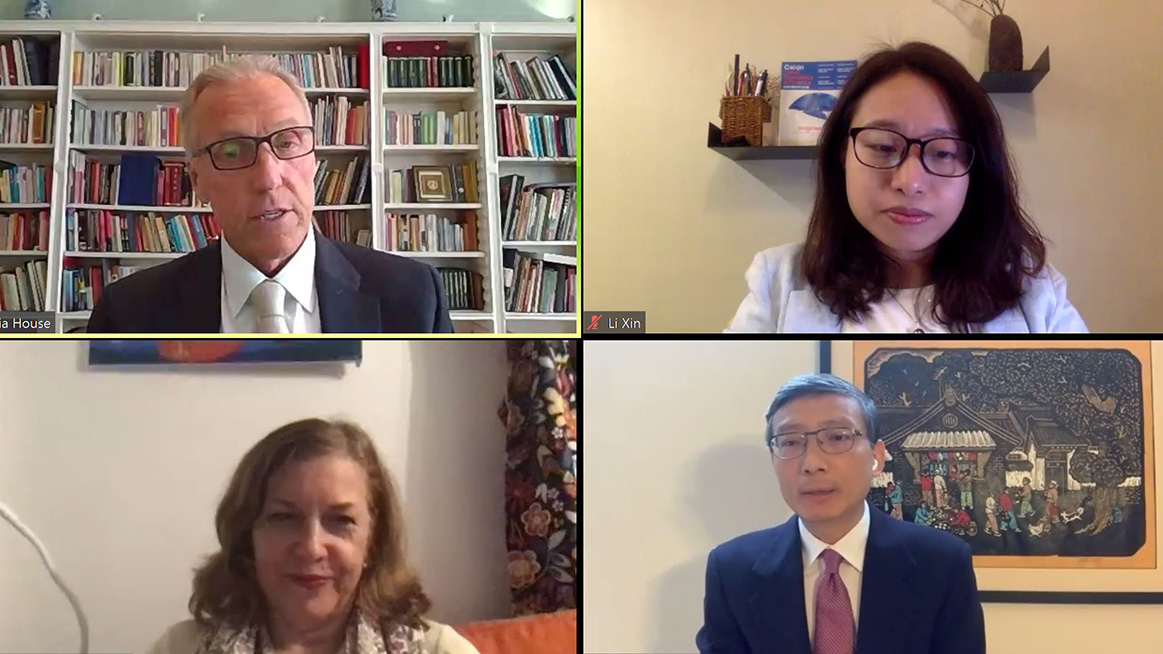Driving commercial and political engagement between Asia, the Middle East and Europe
Driving commercial and political engagement between Asia, the Middle East and Europe
Driving commercial and political engagement between Asia, the Middle East and Europe

China is making progress in its economic recovery from the coronavirus crisis, but warning signs remain, according to new data released today by the Cheung Kong Graduate School of Business (CKGSB).
The April CKGSB Business Conditions Index (BCI) – an influential measure of business sentiment in China – was presented during an Asia House webinar with CKGSB, and showed a modest improvement on data from March.
However, investment and hiring indices dropped sharply, from 49.1 in March to 45.0 in April – something which Asia House Chairman Lord Green described as “a warning sign”.
During the webinar, Li Wei, Professor of Economics, Associate Dean of MBA Program, Director of the Case Center, CKGSB, outlined the key findings of April’s BCI, painting a mixed picture of China’s economic environment.
There was a small increase in the overall BCI, with the April index rising to 42.2 from 41.3 in March. But the investment and hiring figures are a cause for concern in terms of China’s long-term prospects, Professor Li said.
“Hiring is falling down and the interest in investment is declining,” he commented. “This is something we’ve never seen before since we started collecting the data [for the BCI].
“It is something that we need to address in policy, and in many areas.”
Policy response was an issue explored further when Asia House Chief Executive, Michael Lawrence, opened the discussion up, bringing industry experts Alicia Garcia-Herrero, Chief Economist, NATIXIS; Xin Li, Managing Editor, Caixin Global; and Asia House Chairman Lord Green into the discussion.
For Garcia-Herrero, while there has been some encouraging signs in China’s infrastructure-based stimulus approach, its focus is not where it needs to be.
“The lack of demand is pushed by a very weak labour market,” she said. “Infrastructure-led stimulus might not be good enough to lift the labour market, which is what is needed for people to consume.” Garcia-Herrero suggested a shift in focus “to a much more consumer-led stimulus.”
The nature of this stimulus was explored by Caixin Global’s Managing Director, Li Xin, who identified a “tug of war” between local and central government over which sectors should be prioritised.
Asked about the role of the central government in stimulating the economy, Xin outlined the clear messaging coming from Beijing. “The government priority is very much centred on basic livelihood and employment,” she said, adding that this will likely set the tone when the National People’s Congress meets in May. “The guarantee of basic livelihood and employment is very much front and centre.”
However, the increasing importance of China’s innovation industry indicates a hands-off approach will be necessary to some extent, Xin said. “Much of tech sector is privately led, and that can’t be changed. If you want to boost the tech sector, you have to give more leeway to private companies.”
Senior business and policy figures joined the webinar from around the world, with Lord Sassoon asking the panel about the shifts in working practices likely to emerge in China, and economist Gerard Lyons noting that the BCI’s finance sector indices for April strike a more optimistic tone than analysis published elsewhere.
Other questions included the performance of China’s e-commerce sector during the coronavirus lockdown, and the likely reshaping of value chains.
For Asia House Chairman Lord Green, the current challenges facing China and the world are of course profound, but he was broadly optimistic about the readjustment of the global economy in the long-term.
“The new normal won’t look too different to the old normal by that time,” he predicted.
The briefing was part of an ongoing series of digital events convened by Asia House to keep its network informed during the coronavirus crisis.
